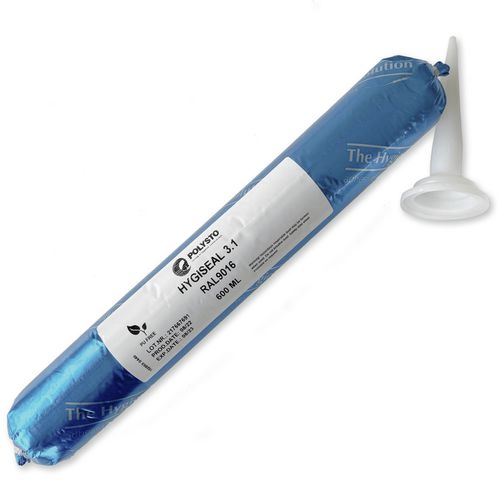HygiSeal 3.1 is the new product for chemical welding of joints with a 1K hybrid polymer.
Cleanrooms, laboratories, production areas, wet rooms, packaging areas, kitchens, etc... are subject to intense daily use and intensive cleaning. These area's must comply with the highest standards of hygiene. PolySto HygiSeal is an isocyanate-free and durable sealant solution that meets up to the requirement!
The chemical welded HygiSeal joint between the PolySto components and the connection with floor and wall ensure a durable, seamless and fungus repellent connection that is resistant to intensive high pressure cleaning.
Due to the hard and smooth surface of HygiSeal joints there is less bacterial adhesion compared to classical food safe silicones.
Hygiseal is tested and certified for VOC standards as BREEAM Nor and International; Indoor Air Comfort; French A+ "Emissions dans l'air intérieur" and Italian CAM Edilizia.
What are the problems with classic sealants in the food industry?
Silicone joints are commonly used in construction and manufacturing industries to provide a flexible and waterproof seal between two surfaces. However, the use of silicone joints in food-safe environments is not recommended, and it's important to understand why.
The primary concern with using silicone joints in food-safe environments is the potential for contamination. Silicone is a porous material that can absorb and trap bacteria, making it difficult to clean and sanitize. This is particularly problematic in environments where food is being prepared or stored, as the bacteria can easily transfer to the food, leading to foodborne illnesses.





